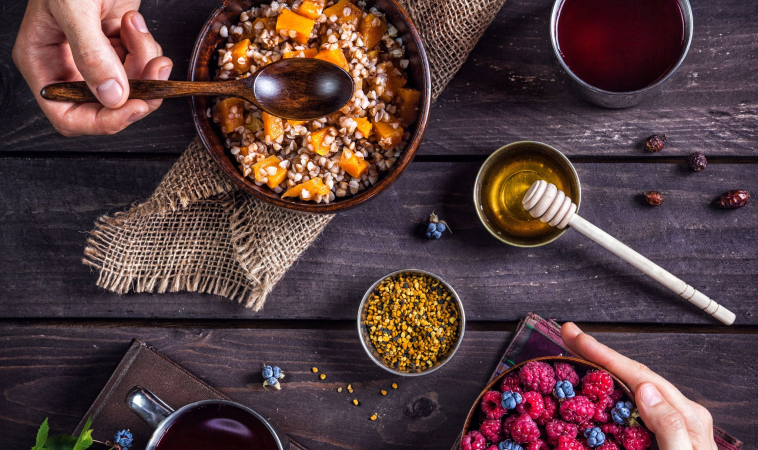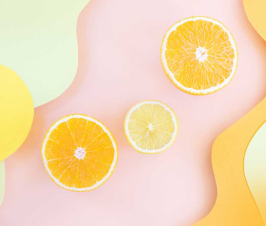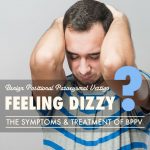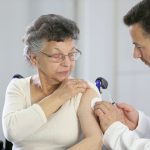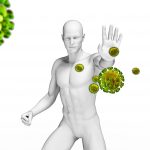 With all the concern around the Coronavirus, many of us in the community want to optimize our immune system to keep ourselves healthy and less at-risk. There are 3 primary ways we can vitalize ourselves – nutrition, rest, and relationship to stress.
With all the concern around the Coronavirus, many of us in the community want to optimize our immune system to keep ourselves healthy and less at-risk. There are 3 primary ways we can vitalize ourselves – nutrition, rest, and relationship to stress.
Nutrition is a critical determinant of immune response: 3 primary ways we can vitalize ourselves
Like anything else, immunity functions better when it’s well-nourished and has the building blocks it need to do its job.
Protein malnutrition is associated with significant impairment of immunity, especially for healing and recovery. Eat a variety of protein foods including seafood, lean meat, poultry, eggs, beans and peas, raw nuts and seeds or other plant-based proteins.
Vitamin A helps regulate the immune system and protect against infections by keeping skin and tissues in the mouth, stomach, intestines and respiratory system healthy. Get this immune-boosting vitamin from foods such as sweet potatoes, carrots, broccoli, spinach, red bell peppers, apricots, eggs.
Vitamin C helps protect you from infection by stimulating the formation of antibodies and boosting immunity. Include more sources of this healthy vitamin by choosing citrus fruits such as oranges, grapefruit and tangerines, or red bell pepper, papaya, strawberries, tomato juice. If you buy the effervescent packets of C, make sure you get the ones with no added sugar – most of those packets have a teaspoon or more of sugar each!
Vitamin E works as an antioxidant, neutralizes free radicals and may improve immune function. Include vitamin E in your diet with fortified cereals, sunflower seeds, almonds, vegetable oils (such as sunflower or safflower oil), hazelnuts and peanut butter.
Zinc helps the immune system work properly and may help wounds heal. Zinc can be found in lean meat, poultry, seafood, milk, whole grain products, beans, seeds and nuts.
Other nutrients, including vitamin B6, folate, selenium, iron, as well as prebiotics and probiotics, also influence immune response, even when the deficiency is mild.
Fats or lipids are substances that exert a profound effect in the modulation of the immune system. The fatty acid composition of lymphocytes, and other immune cells, is altered according to the fatty acid composition of the diet which can modulate immune response. Healthy fats are found in deep sea fishes, salmon, grass-fed beef, eggs, raw nuts and seeds, avocado, coconut, olive and other oils.
Sugar is a food that works directly against the immune system. For each teaspoon of refined sugar consumed, immunity is lowered for 6 hours. It is best to avoid added sugar in general, but especially if you’re trying to fight or avoid infection.
Dairy is a mucous-forming food even for those without sensitivity, so is best to be avoided during illness or for prevention.
Rest.When we get a minimum of 8 hours of sleep that starts by 10pm, we are allowing our bodies to rest and repair from the day’s efforts. If we are going to bed late or not getting adequate sleep, we are setting ourselves up to have lowered defenses. Studies show that while moderate exercise enhances immune function, high-intensity physical activity and periods of heavy training can suppress various immune response parameters.
Stress. We know that cortisol, the primary stress hormone, has 2 primary jobs – to manage inflammation and to respond to physiological or emotional stress. Because the flight, fight or freeze response is more related to survival, our bodies will preferentially push cortisol down the stress pathway if given the choice. (It matters less if you have a cold or a painful knee if you’ve been eaten by the saber-tooth tiger!) The inflammation cascade is part of the immune system – i.e. that’s why you get achy with the flu. So, if stress and worry are a constant part of our day, we simply have less physiological tools for a healthy immune response.
Fear is a natural response to something that feels threatening
Like the Coronavirus itself, not to mention the global response and media coverage excitation, it has been around for years (this is version 19). There are probably many people who have had it or will get it and have a more mild response, not dissimilar to the annual flu. Germs and viruses are always around us – there is constant exposure. It is not the bug itself that determines if we get sick – it’s our milieu that contributes greatly to that probability. By eating healthy foods, getting good rest, and relating to stress in whatever way works for you, you are supporting your internal environment to do what it does best – protect you with a balanced immune response.

Dr Nicola Dehlinger, ND, graduated from SCNM in 2004. Dr Nicola sees clients from around the world in her naturopathic medical practice, Pura Vida Natural Healthcare, in Durango, CO. She is an expert in the treatment of anxiety, depression, and insomnia. She is able to minimize supplements and medications as her patients become empowered to heal themselves. In addition to seeing clients, Dr Nicola leads group and private retreats. She also teaches a variety of online and in-person classes. In her free time, you can find Dr Nicola in the mountains or the kitchen, enjoying time with her husband, son, and their dogs. Website: www.puravidahealthcare.com

